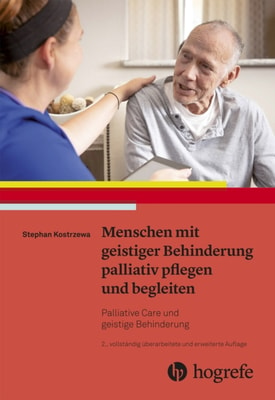Menschen in ihrer letzten Lebensphase begleiten
Alle beruflich Pflegenden und ehrenamtlich Begleitende finden in diesem Buch die notwendigen Kenntnisse für eine umfassende Betreuung von schwerstkranken und sterbenden Menschen und deren Angehörige zu:
- Prophylaxen, Therapien, Schmerzlinderung
- Kommunikation und Ethik
- Psychosoziale Betreuung
- Gesetzliche Grundlagen und Hinweise zur Finanzierung durch die Krankenkassen
- Besondere Situationen bei Kindern, Menschen im Wachkoma, mit geistigen Behinderungen und Demenz
Neu in der 6.



